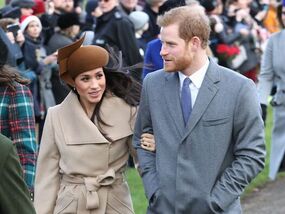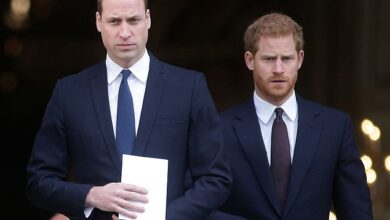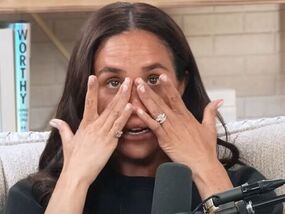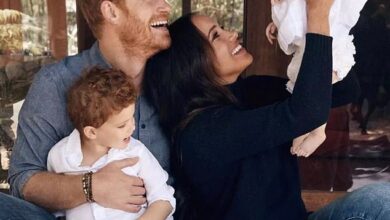Revealed: Meghan’s popularity with the British public remains unchanged, with just 25 per cent having a positive view of the Duchess – while all other royals enjoy rising approval ratings
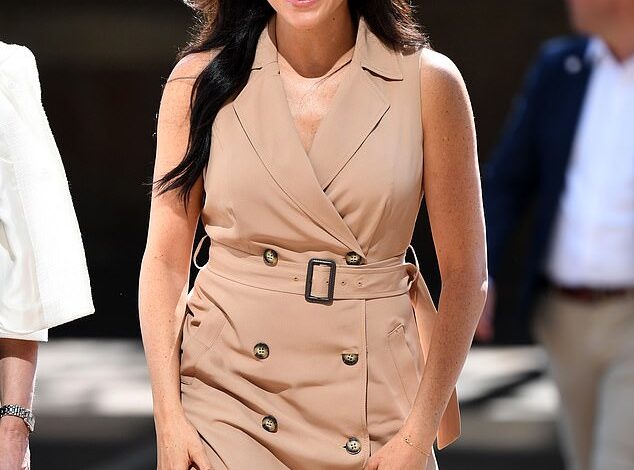
Meghan Markle‘s popularity with the British public remains unchanged, with just 25 per cent having a positive view of the Duchess, a survey has revealed.
The survey, conducted for The Mail on Sunday, showed Meghan was the only member of the Royal Family whose approval ratings did not rise since the King’s Coronation last May.
Meanwhile, the Princess of Wales enjoyed the largest boost, with a jump of 10 per cent taking her to 69 per cent.
Catherine has stepped away from the public eye since being admitted to hospital in January for major abdominal surgery, before discovering she had cancer.
The princess has since undergone chemotherapy treatment and has continued to step away from public duties as she focuses on her recovery.
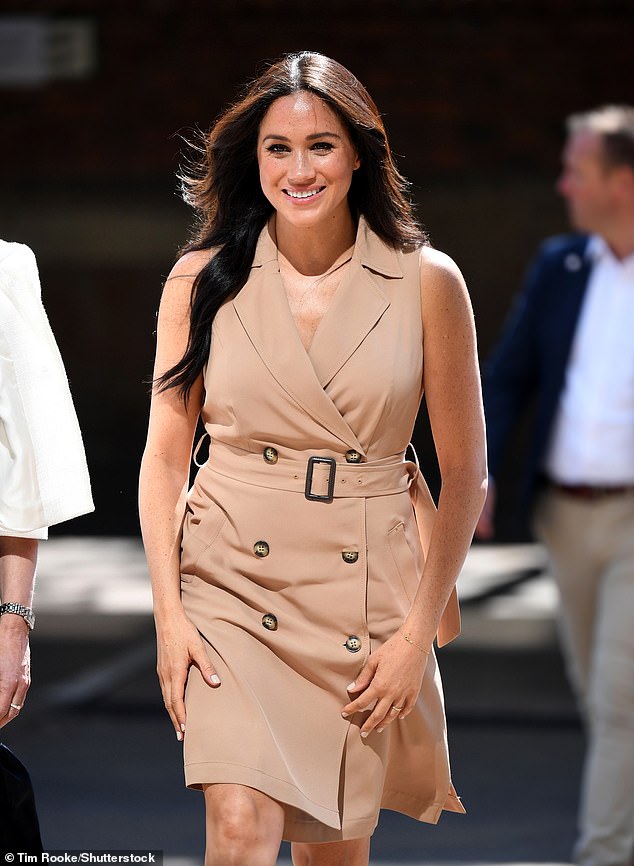
Meghan Markle’s popularity with the British public remains unchanged, with just 25 per cent having a positive view of the Duchess
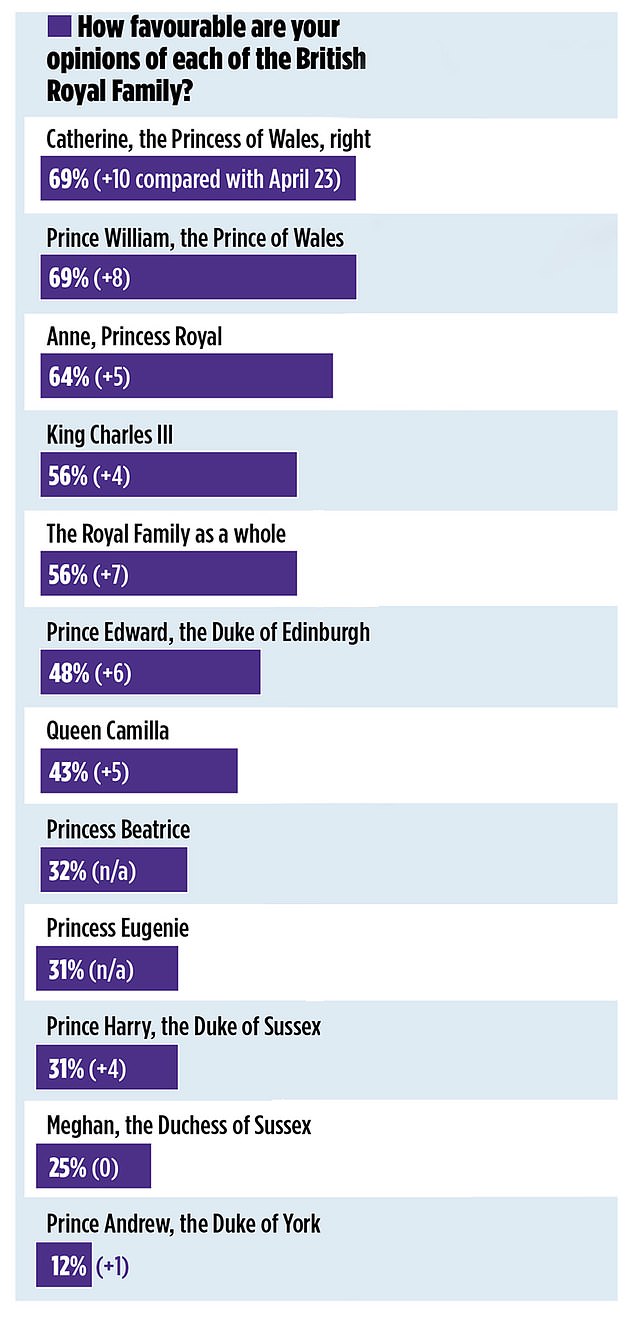
The Prince and Princess of Wales proved to be the joint most popular members of the Royal Family
The majority of the public believe the palace has shared enough information about Catherine’s health – after speculation about the cause of her absence circulated on social media before she revealed she had cancer.
Catherine and William, the Prince of Wales, proved to be the joint most popular members of the Royal Family, with 69 per cent approval ratings.
Meanwhile, Harry came third to last and Meghan was second from the bottom, only proving more popular than Prince Andrew, who received an approval rating of 12 per cent. Harry’s approval is now at 31 per cent, while Meghan stayed put at 25 per cent.
The poll of 2,116 adults was conducted by Ipsos for the Mail on Sunday.
The majority of the public – 56 per cent – believe King Charles is doing a good job as monarch, compared to 49 per cent a year ago.
Like Kate, Charles also stepped away from public royal duties after he was diagnosed with cancer earlier this year.
Charles looked overjoyed to be back to public duties at the end April for the first time since his diagnosis, smiling and waving as he arrived at a hospital in London.
His Majesty – who still has the disease and is undergoing treatment – visited the University College Hospital Macmillan Cancer Centre with his wife Queen Camilla, meeting patients and staff in his role as the charity’s patron.
Charles is keen that his inaugural engagement since doctors gave him the all-clear to restart public events will raise awareness of the importance of early diagnosis.
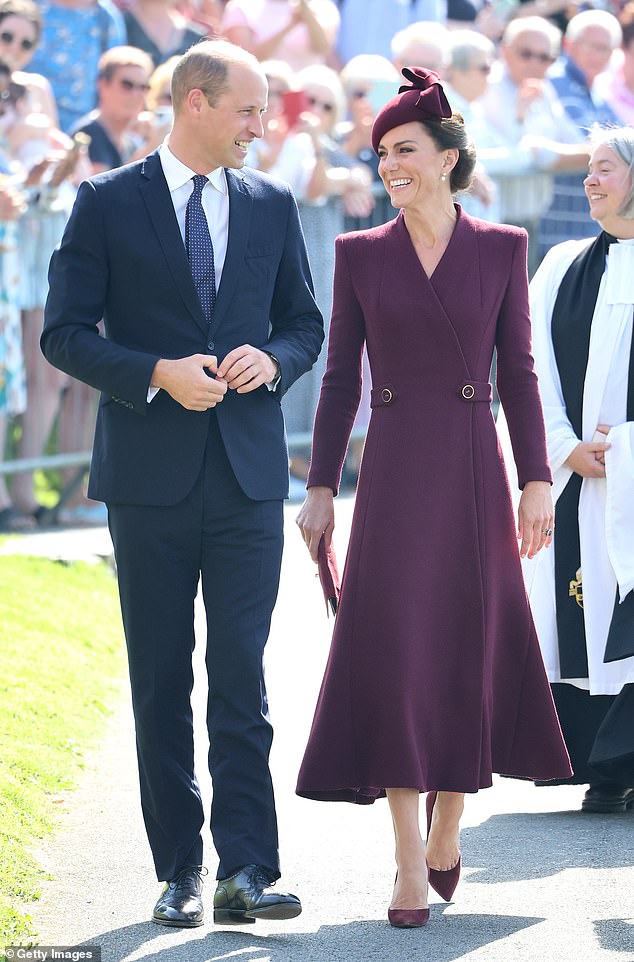
William and Kate proved to be the joint most popular members of the Royal Family
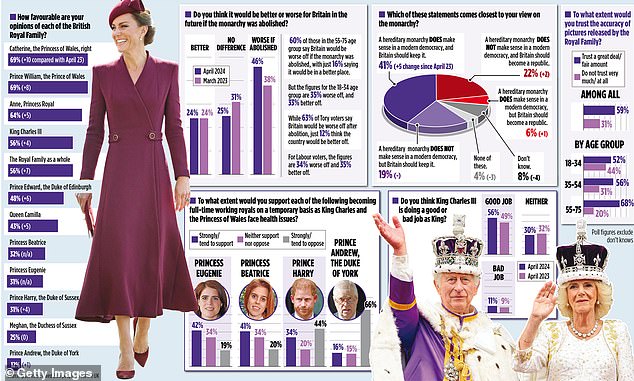
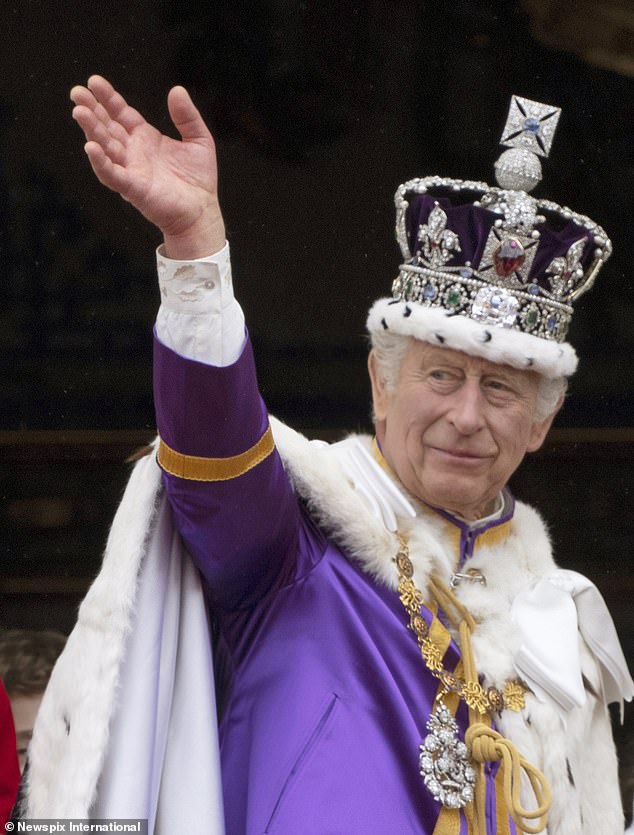
King Charles pictured waving on the balcony of Buckingham Palace on the day of his Coronation
But while the exclusive analysis for the MoS will be welcomed at the Palace, it also hints at the challenges facing the monarchy.
Following the furore around the Princess of Wales’s edited Mother’s Day photo, one in three of the 2,166 British adults surveyed by Ipsos said they did not trust the accuracy of pictures released by the Royal Family – and young people were the most sceptical.
Gideon Skinner from the polling firm, told the Mail on Sunday: ‘As the King returns to public duties he is greeted by a further boost in favourability ratings for himself and other core members of the Royal family.
‘The question for the monarchy is whether this is a short-term improvement driven by a swell in public sympathy or whether it can be maintained – particularly among younger generations where the Royals need to focus their engagement effort.’
The survey also reveals:
Some 60 per cent of Britons believe we should keep the monarchy, with 28 per cent preferring a republic;
The Prince and Princess of Wales are the most popular members of the Royal Family with 69 per cent approval ratings, while just one in eight give their backing to Prince Andrew;
There is an age divide, with one third of young people saying it ‘would be better’ if the monarchy was abolished, compared with just one in six of older people;
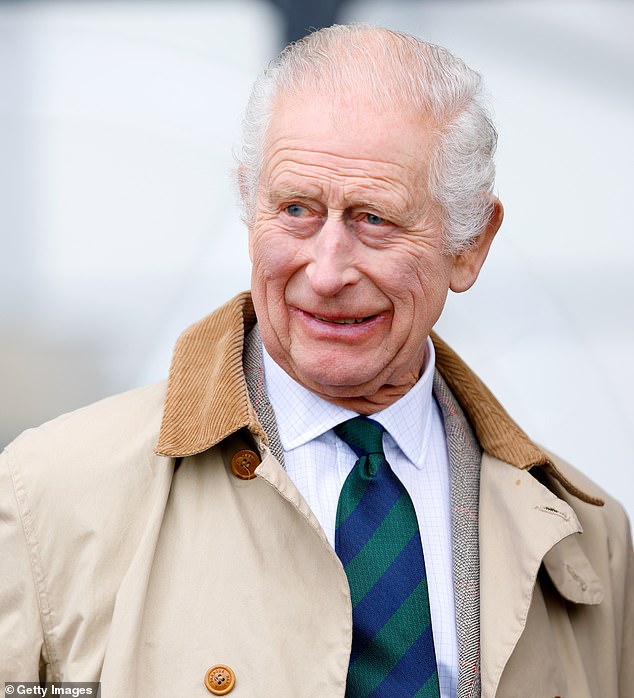
Charles also stepped away from public royal duties after he was diagnosed with cancer
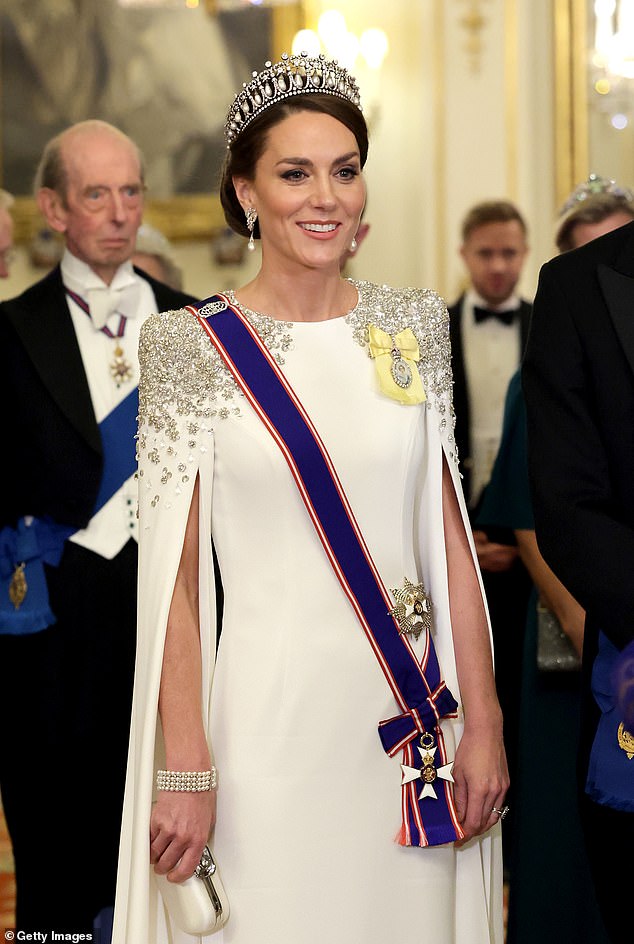
In March Kate released a video explaining she was having preventative chemotherapy after cancer was found in tests
Conservative voters are the most supportive of the Royal Family, but King Charles noticeably has strong backing across the political spectrum.
Of all those surveyed, 56 per cent said Charles was doing a good job as King, a healthy increase of seven percentage points compared with April 2023.
He has also won over voters of all stripes, with 73 per cent of Conservatives, 68 per cent of Liberal Democrats, and 49 per cent of Labour voters agreeing he has done ‘very’ or ‘fairly’ well.
Royal biographer Hugo Vickers said: ‘These results should be very reassuring for King Charles. Compared to politicians, he is well ahead of the game.
‘As monarch, he can appeal to both sides of the political spectrum and be a representative of the country who doesn’t have to climb the greasy pole of politics and has a certain modesty because he’s there by fate.’
Queen Camilla’s popularity – based on the number of people who said they had ‘favourable’ views of her – has increased to 43 per cent, from 38 per cent in a similar Ipsos poll last April.
The public are still divided on her title, with the majority, 35 per cent, thinking she should be ‘Queen Consort’.
But the proportion who approve of ‘Queen Camilla’ has grown from just 14 per cent last year, according to a survey by Deltapoll, to 25 per cent now.
Mr Vickers said: ‘If we were to single out the stars, Queen Camilla has come out of this year absolutely brilliantly. At the age of nearly 77 she has been the front face of the monarchy.
‘Who’d have thought it, Mrs Parker Bowles distributing the Maundy money?
‘She’s been running the extra mile, and you have to remember her work behind the scenes boosting the King’s morale.’
The Prince and Princess of Wales are the most popular royals, with 69 per cent of the public having a positive impression of them both individually.
This is a rise on last year’s Ipsos survey, from 61 per cent for William and 59 per cent for Kate.
Royal author Margaret Holder said: ‘There is enormous sympathy for Kate after her cancer diagnosis and for William too, who is trying to cope with this awful period for them as a couple and as parents of young children.
‘But even before this, as Prince and Princess of Wales they generated a lot of popularity for the monarchy and were seen to be relevant with their campaigns…
‘In a visual age, it helps that they are an extraordinarily photogenic family – the face of the future.’
Princess Anne, often praised for her work ethic and no-nonsense attitude, continues to be held in high regard, with 64 per cent having a good impression of her, up from 59 per cent last year.
After the release of Netflix’s drama Scoop, which portrayed the Duke of York’s disastrous 2019 Newsnight interview, Andrew is the least popular royal, with just 12 per cent of the public liking him.
The Sussexes continue to languish near the bottom of the rankings, with just 25 per cent having a positive view of Meghan and 31 per cent liking Harry.
But the couple are more popular with young people, with 49 per cent of 18- to 34-year-olds viewing the Prince as ‘favourable’ compared to 18 per cent of 55- to 75-year-olds.
For Meghan, the comparable figures are 42 per cent against 12 per cent. One in three think Harry, who is fifth in line to the throne, should become a full-time royal on a temporary basis while the King and the Princess of Wales suffer with their health.
It comes as the Prince prepares to visit Britain this week for the tenth anniversary of his Invictus Games, sparking speculation as to whether he will have a meeting with his father.
More popular are Eugenie and Beatrice, with just over 40 per cent supporting their return to royal duties.
Mr Vickers said of the Princesses: ‘I think the Palace really ought to use them. They’re very well brought up, have university degrees and do charity work.’ Far fewer – 16 per cent – would welcome their father Andrew back into the fold.
In heartening news for Palace aides, nearly 70 per cent said the Royal Family had released ‘the right amount’ of information about the King’s health and 65 per cent felt the same for Kate.
In January, Buckingham Palace revealed the King was having treatment for an enlarged prostate and in February said he had an unspecified type of cancer.
By contrast, Kensington Palace revealed the Princess of Wales was in hospital only after her ‘planned abdominal procedure’ was completed in January.
Conspiracy theories soon whipped around the world, and in March Kate released a video explaining she was having preventative chemotherapy after cancer was found in tests.
Royal commentator Richard Palmer, who has reported on the Windsors for 20 years, said: ‘I think the Royal Family should be reassured by the results of this survey.
It shows they have adopted the right strategy in dealing with this unprecedented health crisis.’ Exposing the challenging path ahead, one third of the public does not trust the accuracy of pictures released by the Royal Family.
There is a generational divide, with 44 per cent of 18- to 34-year-olds saying they ‘do not trust’ the validity of photos shared by the royals, compared with just 20 per cent of 55- to 74-year-olds.
But Mr Palmer said: ‘I don’t think the Royal Family should be too concerned that young people are less trusting of images they share. I suspect it is a result of that generation’s suspicion of all information from official sources.’
Despite much handwringing about the impact of The Crown, only 37 per cent of the country has seen the controversial Netflix show.

